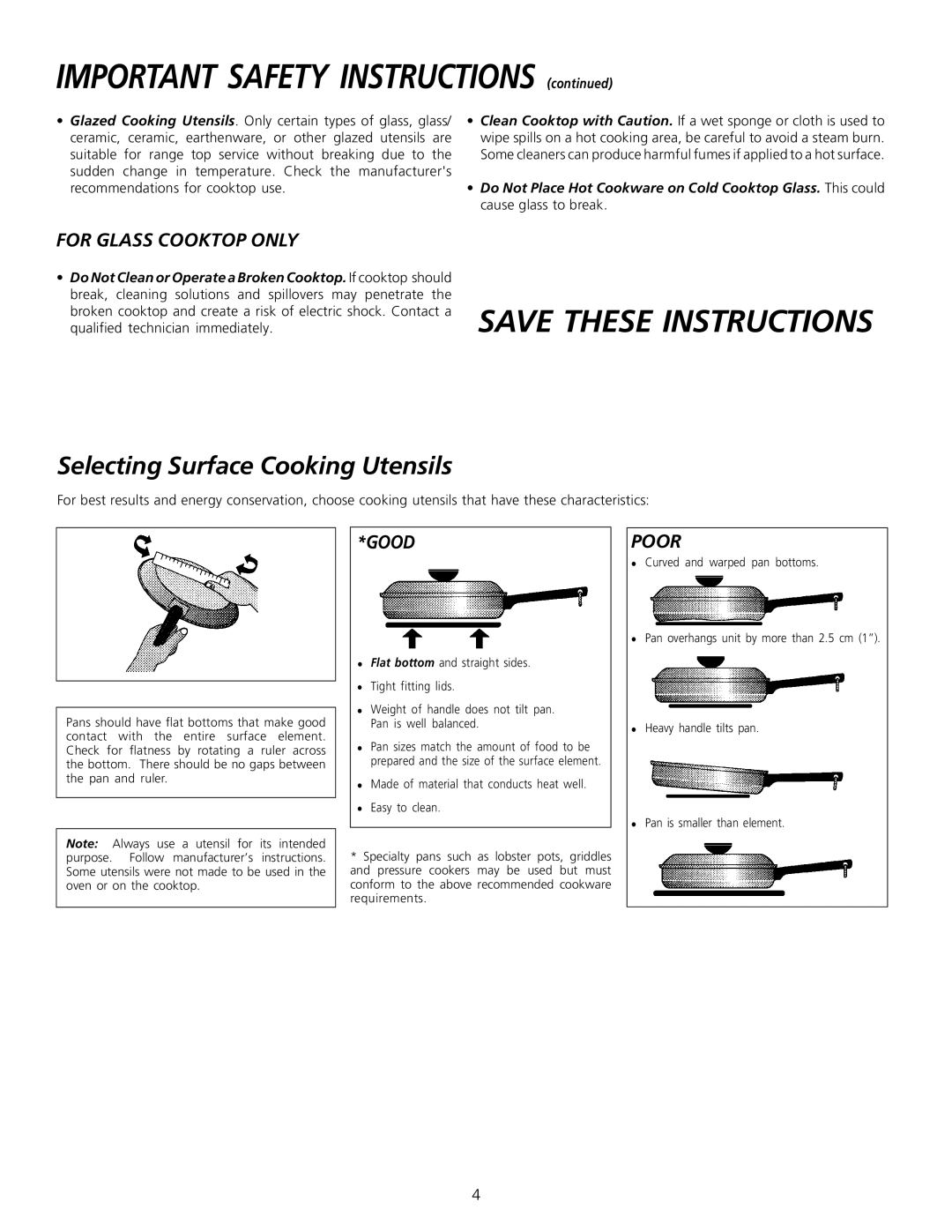
IMPORTANT SAFETY INSTRUCTIONS (continued)
•Glazed Cooking Utensils. Only certain types of glass, glass/ ceramic, ceramic, earthenware, or other glazed utensils are suitable for range top service without breaking due to the sudden change in temperature. Check the manufacturer's recommendations for cooktop use.
•Clean Cooktop with Caution. If a wet sponge or cloth is used to wipe spills on a hot cooking area, be careful to avoid a steam burn. Some cleaners can produce harmful fumes if applied to a hot surface.
•Do Not Place Hot Cookware on Cold Cooktop Glass. This could cause glass to break.
FOR GLASS COOKTOP ONLY
• Do Not Clean or Operate a Broken Cooktop. If cooktop should |
|
break, cleaning solutions and spillovers may penetrate the |
|
broken cooktop and create a risk of electric shock. Contact a | SAVE THESE INSTRUCTIONS |
qualified technician immediately. |
Selecting Surface Cooking Utensils
For best results and energy conservation, choose cooking utensils that have these characteristics:
Pans should have flat bottoms that make good contact with the entire surface element. Check for flatness by rotating a ruler across the bottom. There should be no gaps between the pan and ruler.
Note: Always use a utensil for its intended purpose. Follow manufacturer’s instructions. Some utensils were not made to be used in the oven or on the cooktop.
*GOOD
•Flat bottom and straight sides.
•Tight fitting lids.
•Weight of handle does not tilt pan. Pan is well balanced.
•Pan sizes match the amount of food to be prepared and the size of the surface element.
•Made of material that conducts heat well.
•Easy to clean.
*Specialty pans such as lobster pots, griddles and pressure cookers may be used but must conform to the above recommended cookware requirements.
POOR
•Curved and warped pan bottoms.
•Pan overhangs unit by more than 2.5 cm (1”).
•Heavy handle tilts pan.
•Pan is smaller than element.
4
